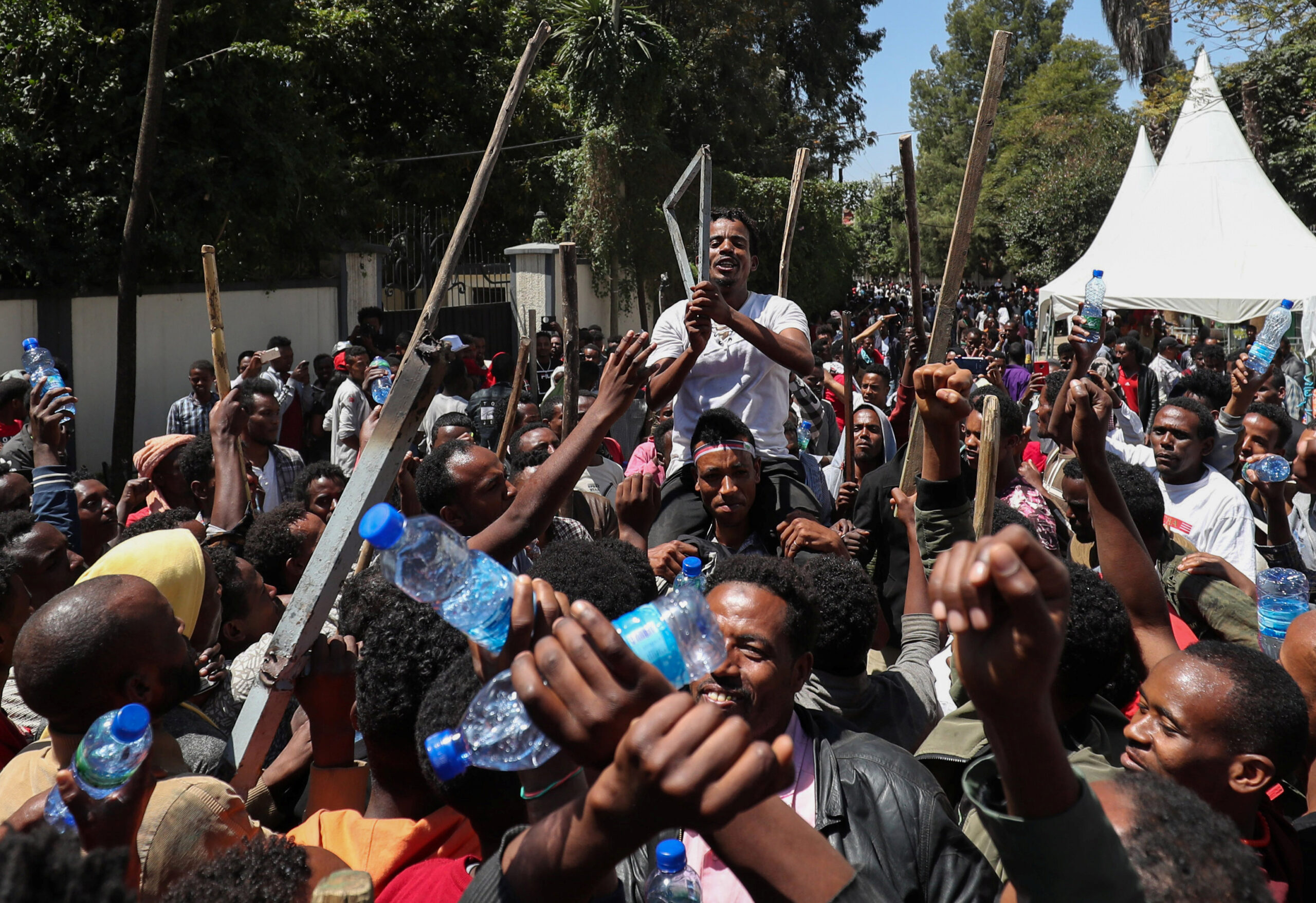
Eye witnesses say violence that hit Ethiopia this week were ethnically motivated

Eyewitnesses in Ethiopia now claim that the violence that rocked Ethiopia this week amid protests were ethnically motivated. They said on Saturday that the attacks were carried out by young men from the Oromo ethnic group against people from other ethnic groups.
The clashes were carried out in various cities in Oromiya, Ethiopia’s most populous province, underscoring the specter of ethnic violence that the United Nations says has already internally displaced more than 2 million people.
After activist Jawar Mohammed said police had ringed his home in Addis Ababa and tried to withdraw his government security detail, his supporters quickly took to the streets on Wednesday and Thursday to protest his treatment.
Crowds of young men from his Oromo ethnic group quickly turned their anger against Prime Minister Abiy Ahmed, also an Oromo, saying that he had betrayed them by mistreating Jawar.

Abiy won the Nobel peace prize this month for making peace with Ethiopia’s longtime foe Eritrea. Jawar had spearheaded protests that propelled Abiy to power last year.
But the young men also lashed out against people from other ethnic groups, three eyewitnesses said.
Oromiya’s top police official said: “There was a hidden agenda to divert the whole protest into an ethnic and religious conflict.
“There were attempts to burn churches and mosques,” Oromiya regional police commissioner Kefyalew Tefera said.
Tefera had said late on Friday that 67 had been people killed in the region in two days of protests.
The majority of the deaths came from fighting between civilians, he said. Police have arrested 150 people in Oromiya region so far in connection with the violence.
Priest Firesebhat Getachew, head of an Orthodox church in Dodola, said eight people killed this week had been buried at his church and 3,000 more were sheltering inside its compound.
“The attackers targeted Orthodox Christians,” he said by phone, adding that the victims were from the Oromo, Amhara, and Sidama ethnic groups. “The area is dominated by Muslims, and they don’t want us and the church there.”
The violence along ethnic and religious lines is one of the biggest challenges yet for Abiy in Ethiopia, Africa’s second-most populous nation.

As the country approaches elections in 2020, the sweeping political freedoms he has overseen have empowered ethnic strongmen building power-bases by challenging the government.
In Alem Gena on the outskirts of the capital, a woman watched from inside the gate to her home as young men speaking Oromo destroyed signs written in Amharic. “A young man standing on the side of the road asked them why they were doing this. Then they started to attack him with a stick,” she said.






